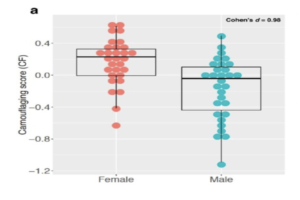Cover Image: In the current age, social media has become a main platform for human interaction. We have to think deeply about whether it contributes to a better world. (Source: Pixabay, jmexclusives)

On the 28th of October, Mark Zuckerberg revealed Facebook’s new name: Meta. Some heralded this move as the dawn of an effort to build a new social space called the Metaverse (a 3D virtual environment for social interaction). But a number of outlets, including The New York times, commented that this move might be more an effort to distract from previous controversies surrounding Facebook such as spreading misinformation and hate speech (Isaac, 2021).
If we set the clock back two decades, it is amazing how information technology has fundamentally changed the current world. While its development brings us convenience, and does offer opportunity for people to connect meaningfully from a distance, numerous problems arise at the same time, one of which is social media overuse. In 2021, 68% of the adult population in the US used Facebook, and on average they spent 19.5 hours on the platform per month. Around 22% and 35% of American adults reported they were users of Whatsapp and Instagram. They spent 19.4 and 10.3 hours per month on those platforms respectively (Mohsin, 2021). Excessive use of social networks could have a series of negative consequences, including diminished work performance, sleep problems, anxiety, and depression (Sun & Zhang, 2021). Recent research investigated the factors affecting our addiction to social media.
There are several different approaches to researching social media and its consequences. One perspective focuses on the mechanisms of information-seeking on social media. Specifically, we have both utilitarian information systems and hedonic information systems (IS). Utilitarian IS are productivity-oriented, where the goal is seeking additional information to use for education or for work, while hedonic IS are pleasure-oriented. Their goal is to facilitate searching for information only for enjoyment (Van der Heijden, 2004). A study explored the ‘vicious cycle’ of hedonic IS in social media addiction, and it suggests that information-seeking on Facebook is pleasure-driven, involving hedonic IS (Turel, 2015). The experiment recruited 284 Facebook users and asked them about Facebook use behavior over the last three months, and about their current addiction to Facebook (at time 1). After one week (time 2), participants had to complete another online survey of their use behavior in the one-week interval. Results showed that increasing use of Facebook over the three months significantly predicts Facebook addiction at time 1, which then predicts greater daily use frequency and duration at time 2. Thus, previous use of hedonic IS promotes current addiction and drives further overuse. This study illustrates that people can grow reliant on hedonic IS and indulge in social media addiction.
Another line of research probes the relation between real-life interaction and social media use. Bekalu et al. (2021) studied social participation, neighborhood social cohesion and social media use. They found that people with low neighborhood cohesion preferred to spend more time on social media. This can be viewed as a trade-off effect, where neighborhood relations compensate for use of social networking sites. From an evolutionary perspective this makes sense: humans are built with internal social needs. Human beings have had to collaborate with each other to confront great dangers since ancient times. The rapid development of technology has led humans to the brand-new digital age, but we still retain a strong desire to interact with others.
Social media platforms are the novel vent of social needs, and these platforms satisfy people who lack human interaction in the reality, but can online interaction fully compensate real-life loneliness? Eddy (2019) answered this question by evaluating online and offline communication within 10 subcategories. The subcategories were important skills in interpersonal interaction, and include self-disclosure, empathy, social relaxation, assertiveness, interaction management, altercentrism, expressiveness, supportiveness, immediacy, and environmental control. Participants rated these subcategories in the real-life and virtual communication. Results showed that 5 out of 10 dimensions (self-disclosure, empathy, interaction management, expressiveness, immediacy) in reality is significantly better than that in virtual environment. This is because we are more likely to ignore important implicit information and nonverbal cues such as facial expression in online settings.
Social media addiction continues to be a heavily studied topic in various fields, including neuroscience, psychology, visual design, and even ethics. For example, technology companies develop algorithms tracking personal data and rewarding users with customized content. They grow their revenue by selling ads and occupying users’ time. This ad-revenue model concerns many privacy advocates. Furthermore, many of these companies are at the front of controversies featuring free speech and human rights. The protection of free speech sometimes allows for the spreading disinformation, which can potentially lead people to act in ways harmful for society. There is much debate about how much – and in what ways – social media companies should censor their content.
Given these concerns, as research continues to elucidate the impact of social media on the individual and society, everyone needs to rethink their personal relations with social media, starting with the question ‘am I addicted to social media?’
References
Bekalu, M. A., McCloud, R. F., Minsky, S., & Viswanath, K. (2021). Association of social participation, perception of neighborhood social cohesion, and social media use with happiness: Evidence of trade‐off (JCOP‐20‐277). Journal of Community Psychology, 49(2), 432-446.
Eddy, A. (2019). Is technology killing human emotion? How computer-mediated communication compares to face-to-face interactions. In Proceedings of Mensch und Computer 2019 (pp. 527-530).
Isaac, M. (2021). Facebook Renames Itself Meta. The New York Times.
Mohsin, M. (2021). 10 FACEBOOK STATISTICS EVERY MARKETER SHOULD KNOW IN 2021. OBERLO. https://www.oberlo.com/blog/facebook-statistics
Turel, O. (2015). An empirical examination of the “vicious cycle” of Facebook addiction. Journal of Computer Information Systems, 55(3), 83-91.
Van der Heijden, H. (2004). User acceptance of hedonic information systems. MIS quarterly, 695-704.
Related Posts
Strength in Numbers: How Community Enhances Perceived Support
Figure 1: Bandmates join in a group hug. The powerful...
Read MoreThe Role of Biometrics in Healthcare
This publication is in proud partnership with Project UNITY’s Catalyst...
Read MoreThe Effects of Affirmative Action on Healthcare Diversity
This publication is in proud partnership with Project UNITY’s Catalyst...
Read MoreHow the Bystander Effect on Security Robots can Hamper Law Enforcement
BigDog robots being tested under the supervision of a Boston...
Read MoreAutism Spectrum Disorder and Gender: The Case for Expanding the Autistic Phenotype
This article was originally submitted to the Modern MD competition...
Read MoreNeuroscience, Narrative, and Never-Ending Stories
Figure 1: A field of poppies. The myths of Persephone...
Read MoreAilin Han






